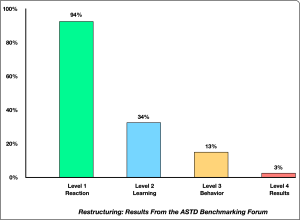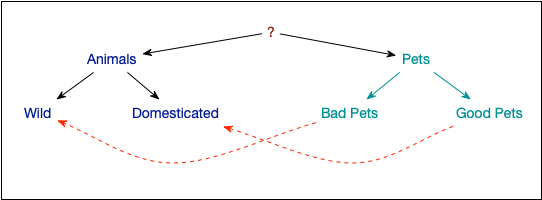I’ve seen a lot of keynotes over the years. I’ve even given them! It’s time to reconcile my thoughts. So here are some key notes on keynotes.
One of the things that I’ve seen is flawless performances. Now, one of the things you’re told is that the focus is on you, and slides only should be used as an augment, not on all the time. I confess I’m not good about that (I am not very comfortable in the spotlight; imposter syndrome I suppose). Another is that you should have pauses, and jokes, and such. I do a pretty good dramatic reading (I won the dirty limerick reading contest at work once!), and occasionally even manage to raise a smile or two. The best, however, have their patter completely down. I can’t do that, because my thoughts are continually evolving, but I admire it when it happens. And I’m pretty good at tailoring a talk to the audience (having learned a few times the hard way!).
Inspiration is good, too. Letting people know there’s a way to surpass this barrier works! I try to do that too, though I confess I talk about learning design, not achieving things like climbing Mt Everest (really heard a keynote about that, and it was cool!). And I probably am a bit too conceptual, though I am learning to do better about grounding my principles in practice. However, I do recoil from too much ‘enthusiasm’! Somehow it comes across as artificial. But then, I can be a bit of a curmudgeon (apparently)…
However, what really matters to me is accuracy. I don’t mind if folks are a bit enthusiastic or polished, but I really get wound around the axle a bit when folks state stuff that’s just wrong. For instance, I heard a well-regarded personage opine about games, something I know a wee bit about (my first job, back when dinosaurs strode the earth, was on games, and it’s been a recurrent them in practice, research, and writing for literally decades). And that individual said something just dead wrong. As you may surmise, it really ground my gears. Similarly with learning science, or mobile. In general, when people have beautifully symmetric ‘n part models’ without grounding, I want to know if those are convenient, or a necessary and sufficient list. (Too often the former.)
I also like when people tout doing things I believe in, but when it’s an area I know about, you better agree with the science, and present it accurately. If you don’t, well, I won’t be quiet about it. (I guess it’s a flaw in my character!) Still, when you say these are the five things to X, and they’re a) not completely separable, b) incomplete, c) wrong, etc, I’m going to be turned off.
Look, I love a good keynote. Many times, they get people who aren’t from the field where the keynote’s presented, and they make connections from adjacent fields. That’s acceptable, even desirable! I like a well-presented talk as well as the next person. I like ideas, and even inspiration. But I will complain about bad information. Always. Those are my key notes on keynotes, what are yours? (And I’m available, if you want L&D advice ahead of the curve but grounded in evidence. Particularly contrary takes… ;)

